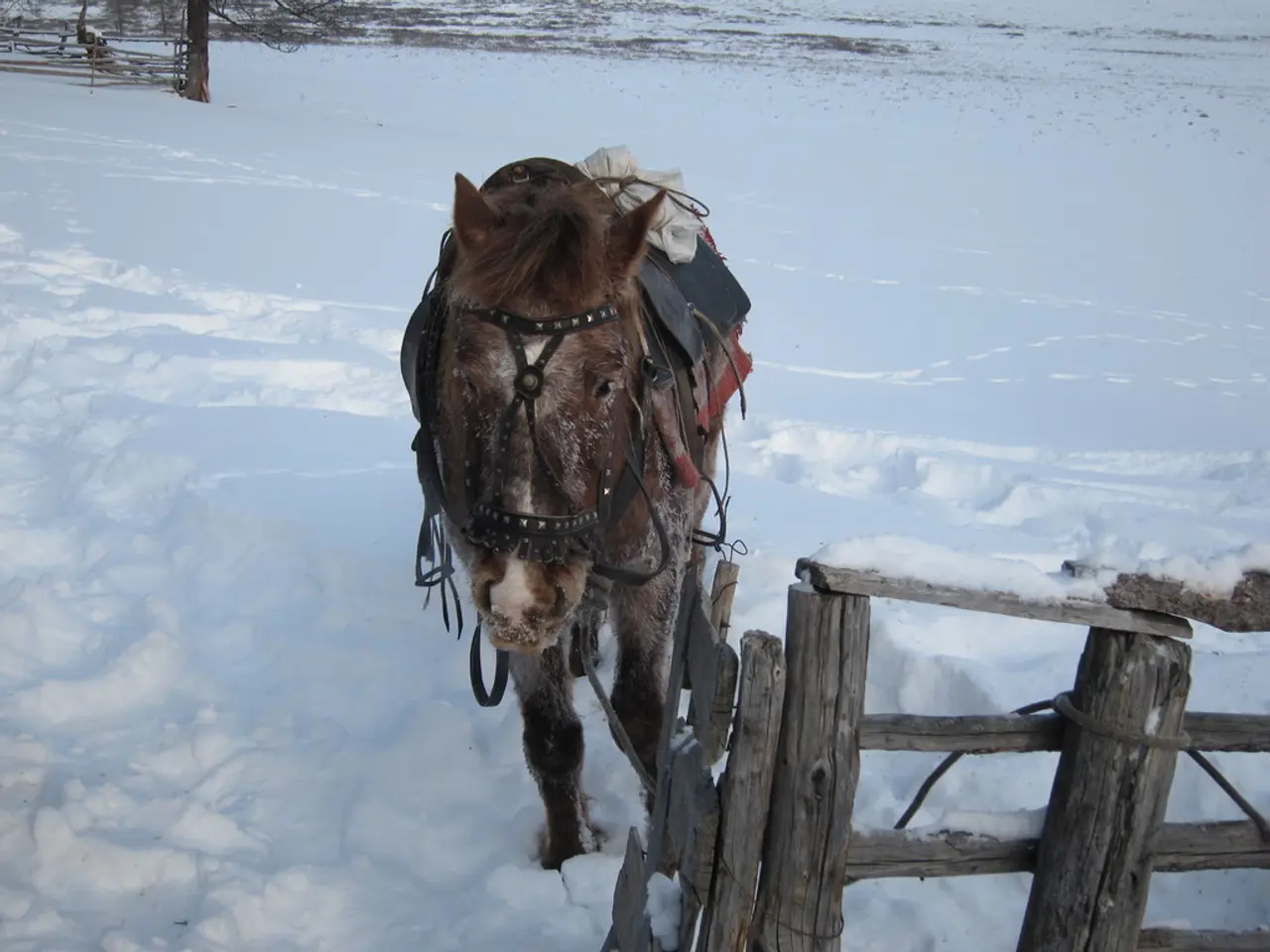Chinese Enterprises Aim to Acquire Export Permits for Donkey Meat from Pakistan
In the heart of Pakistan, two Chinese companies have applied for licenses to legally export donkey meat and byproducts to China, aiming to establish a regulated supply chain that could significantly impact the global donkey population and the economy of both countries.
The Ministry of National Food Security & Research in Pakistan is currently reviewing these applications. If approved, the companies could export donkey meat and byproducts to China, primarily to support the Chinese e-jiao industry, which reportedly requires about 5.9 million donkey skins annually.
Gwadar port in Balochistan has been designated as the exclusive site for processing and exporting donkey meat and related products. Meat processing outside of Gwadar is strictly prohibited to ensure strict regulatory oversight and prevent domestic distribution or unauthorized operations. This centralized approach is intended to maintain quality control and compliance with export standards.
The enforcement measures follow recent crackdowns on illegal donkey meat operations, such as a raid near Islamabad in late July 2025, where nearly 1,000 kg of donkey meat and 50 live donkeys were confiscated from an unlicensed slaughterhouse, including the arrest of foreign nationals involved in the illicit trade.
The potential economic impacts of formally authorizing donkey meat exports include significant foreign exchange earnings for Pakistan. These exports cater to a niche but high-demand market in China driven by the e-jiao industry, which uses donkey skins for traditional medicine production. The value of this trade could benefit Pakistan’s economy, especially through the operational role of Gwadar, which is positioned as a key logistical hub facilitating sustainable and legal trade flows.
A slaughterhouse in Gwadar has started production to meet the surge in demand for donkey meat, bones, and hides for e-jiao manufacturing. Meanwhile, the Authority's team is destroying the seized one-tonne of donkey meat recovered from an illegal slaughterhouse in Tarnol.
The Pakistan Bureau of Statistics reports a rise of 109,000 donkeys over the past year, bringing the total to 6.047 million. With the regulatory framework in place, the proposed exports would be routed through Gwadar in Balochistan, ensuring full oversight and preventing unauthorized operations.
E-jiao, a traditional Chinese medicine, is considered a "national cultural heritage" and is one of the most important products in the traditional Chinese medicine industry. China remains a major market for donkey meat in cuisine and e-jiao production.
| Aspect | Details | |-------------------------------|-----------------------------------------------------------------------------------------------| | Regulatory status | Licence applications under review; approvals pending Ministry of National Food Security & Research | | Processing & Export Point | Exclusive processing and export through Gwadar port; no meat processing allowed elsewhere | | Law enforcement | Crackdowns on illegal slaughterhouses; arrests made; strict regulation to prevent unauthorized local distribution | | Role of Gwadar | Sole designated site for processing/export; key to maintaining oversight and compliance | | Economic impact | Potential foreign exchange earnings from donkey meat/byproducts exports to China | | Industry driving demand | Chinese e-jiao industry requiring large quantities of donkey raw materials |
- The approval of the Chinese companies' applications by the Ministry of National Food Security & Research could potentially lead to the export of donkey meat and byproducts from Pakistan to China, primarily to support the Chinese e-jiao industry, which has a historical demand for such products.
- Given the stringent regulatory measures in place and the designation of Gwadar port as the exclusive site for processing and exporting donkey meat and related products, the potential economic benefits to Pakistan from authorized donkey meat exports could significantly increase, with Gwadar serving as a key logistical hub and facilitator of sustainable and legal trade flows.







